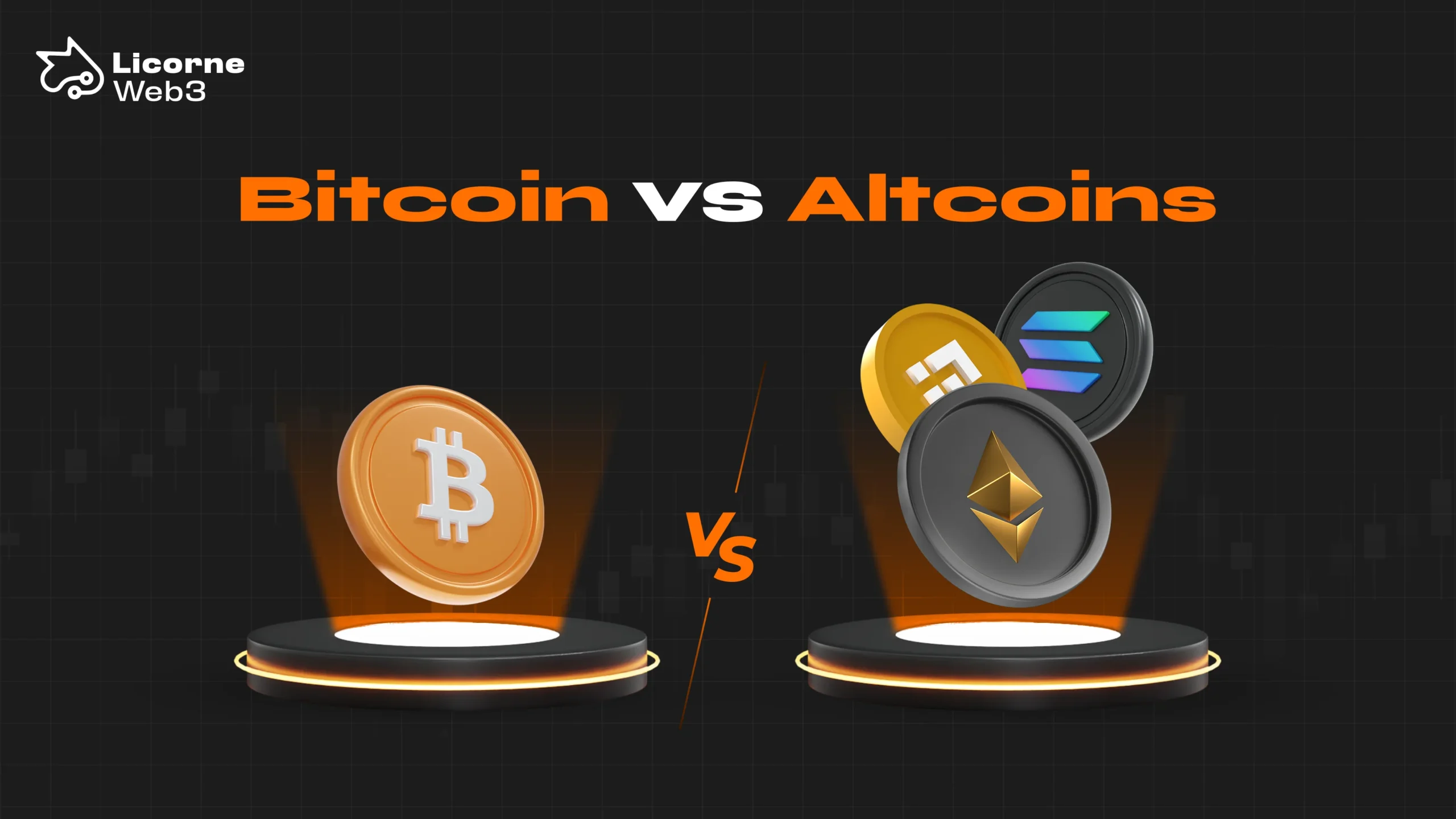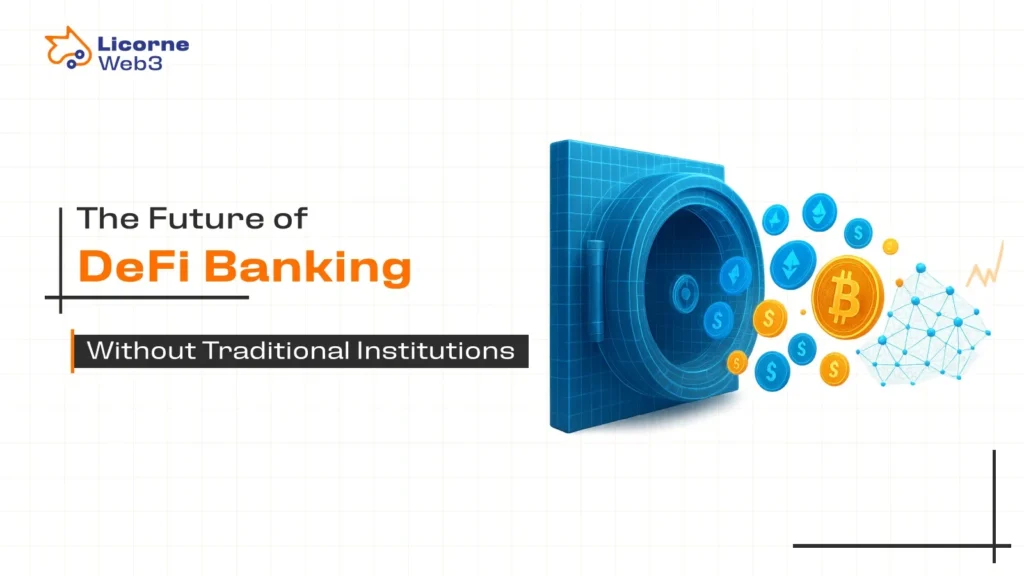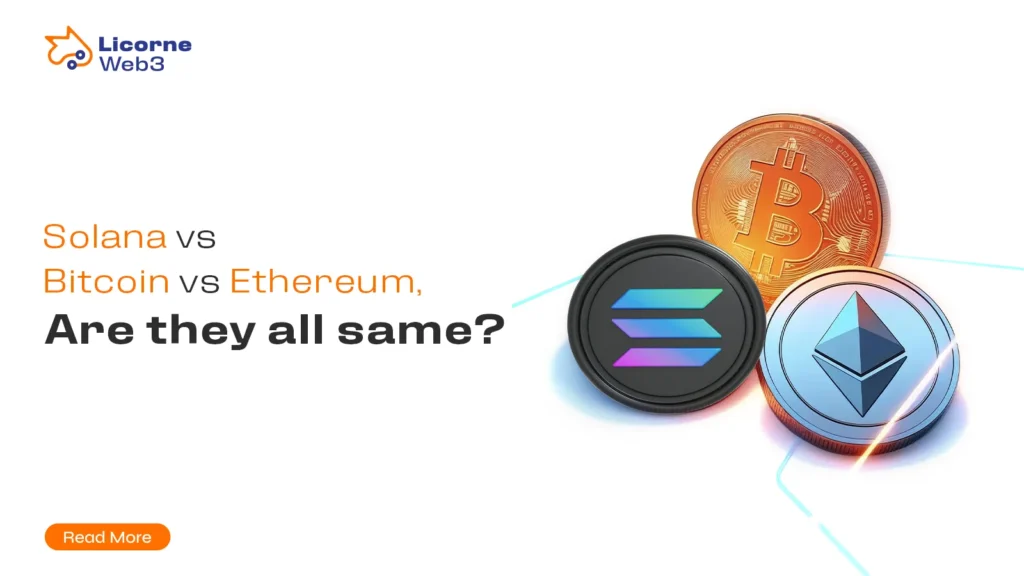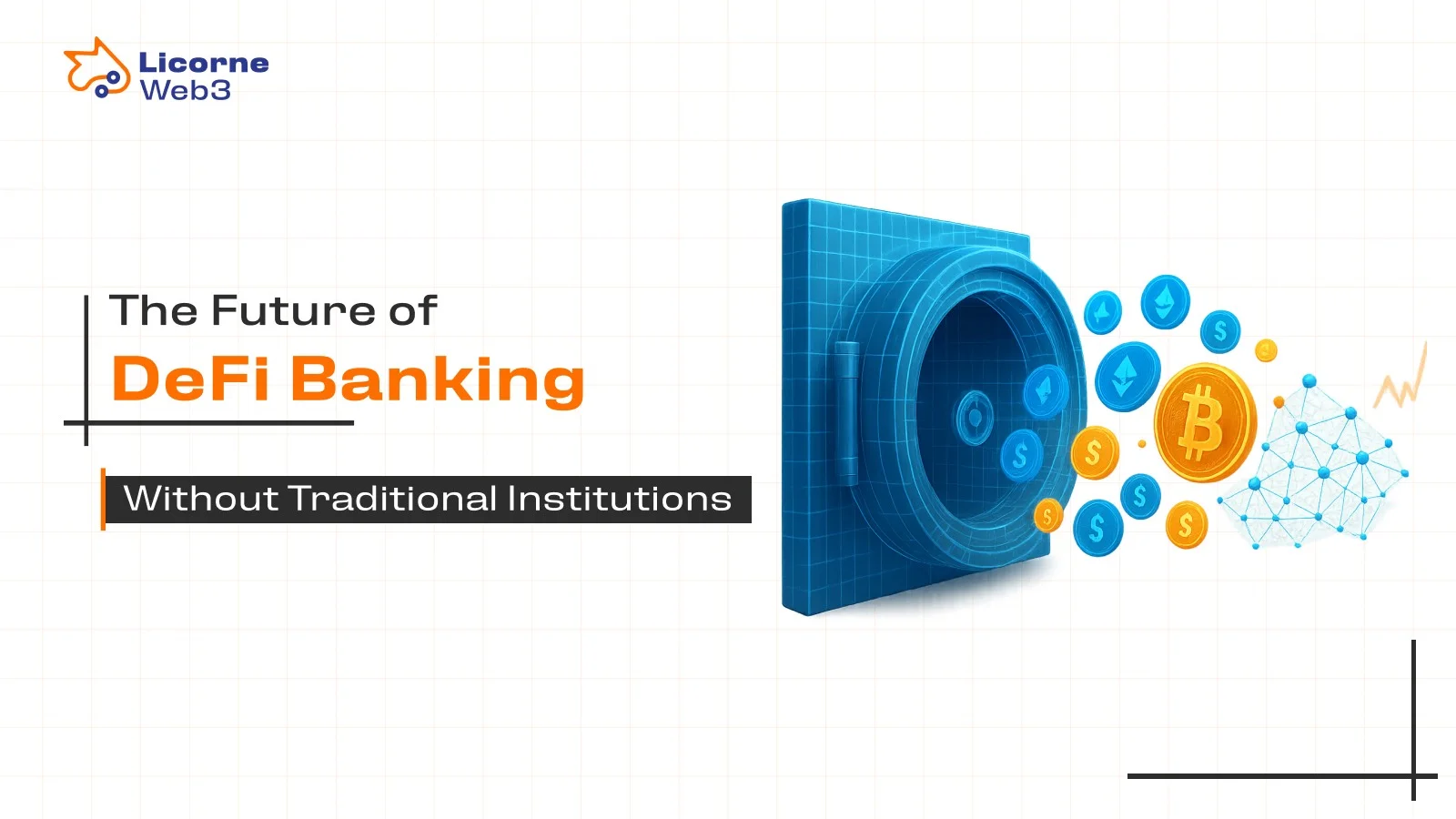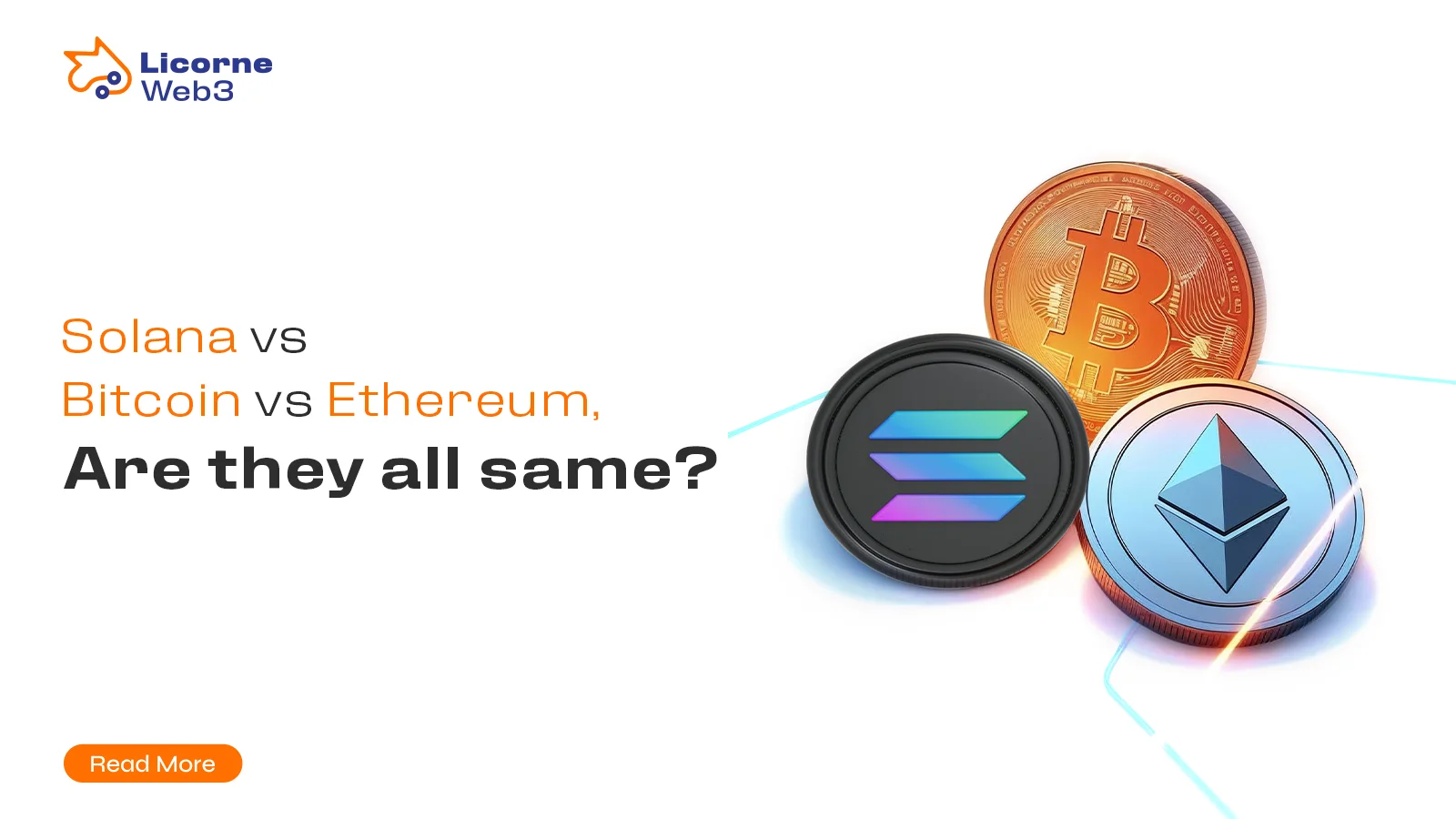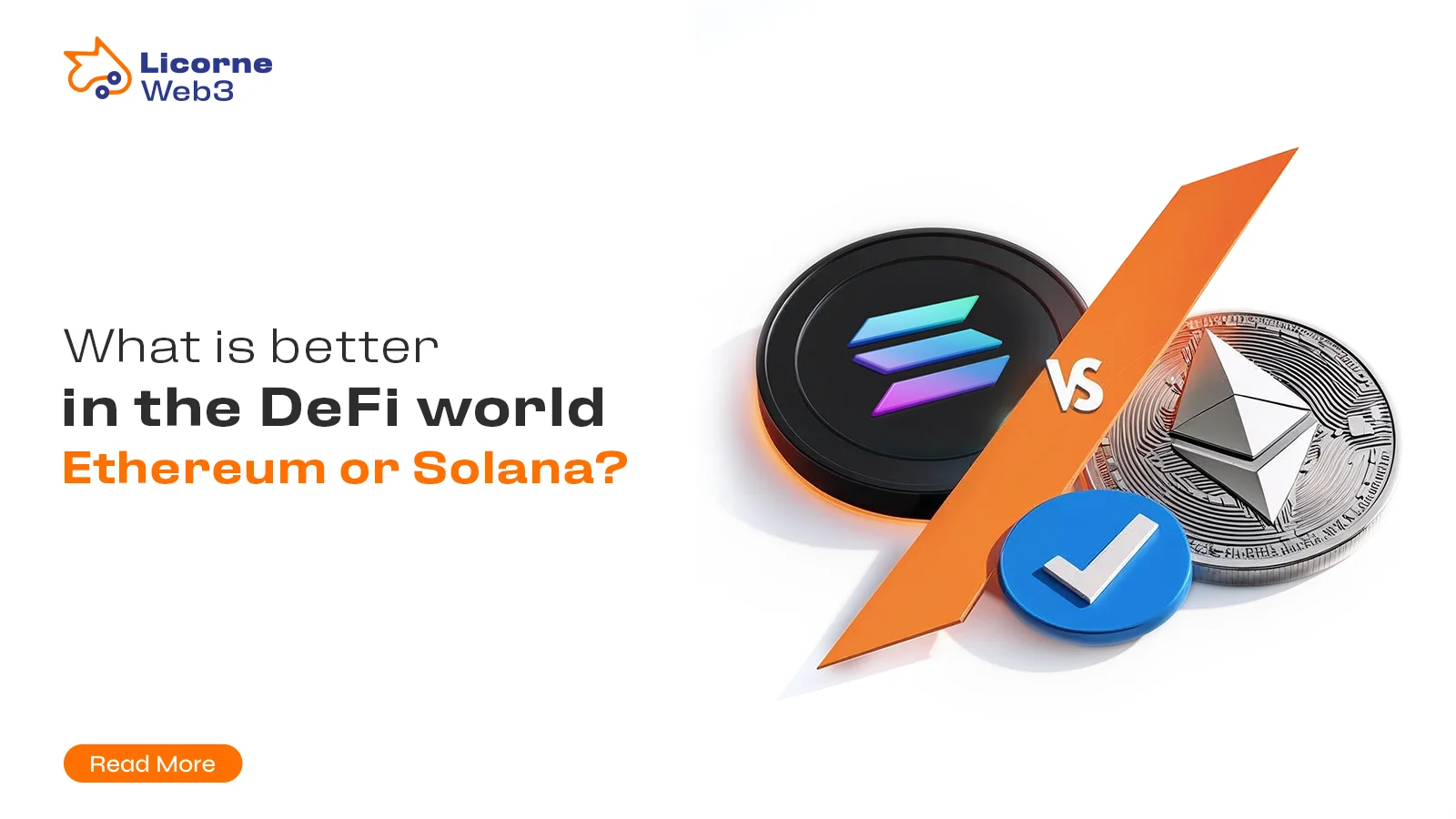Cryptocurrencies have shifted from a topic of interest in tech circles to everyday conversations grabbing people’s attention. At first, many worried about losing money due to price swings, but Bitcoin’s rapid popularity soon changed doubters into fans. Bitcoin’s success has kicked off an interesting debate: Bitcoin vs. Altcoins.
The emergence of new cryptocurrencies has brought fresh aspects to the crypto scene. Since Bitcoin’s launch in 2009, the world of cryptocurrencies has grown a lot. As the first and best-known cryptocurrency, Bitcoin opened the door for countless altcoins.
So, what sets Bitcoin apart from these other digital currencies, and why should you care? To get a better grasp of this changing market, let’s dive into the key differences between Bitcoin and altcoins.
What is Bitcoin?
Bitcoin, created using the anonymous creator Satoshi Nakamoto, is often hailed as “digital gold.” It became the primary cryptocurrency and stays the most popular. Bitcoin operates in a decentralized community, which means no unmarried entity controls it. Its key features encompass:
- Decentralization: Bitcoin runs on a peer-to-peer network, removing the need for intermediaries.
- Limited Supply: Only 21 million bitcoins will ever be created, creating a scarcity that drives value.
- Security: Bitcoin’s blockchain generation ensures that all transactions are secure and obvious.
Bitcoin’s number one position is to function as a shop of price and a medium of alternate. Its substantial recognition and adoption have solidified its role as the leading cryptocurrency.
What Are Altcoins?
Altcoins, or different digital currencies, include all cryptocurrencies except Bitcoin. People made them tackle what they saw as Bitcoin’s weak points and come up with new uses and tech.
Well-known altcoins include Ethereum, Litecoin, Ripple, and many others. Each altcoin tries to make Bitcoin better in its way or to offer new features.
Key Differences Between Bitcoin and Altcoins
Understanding the distinctions between Bitcoin and Altcoins is crucial for anyone navigating the crypto landscape. Let’s jump into the main points:
1. Technology and Protocols
Bitcoin runs on its blockchain using proof-of-work (PoW) concepts. While secure, people often criticize PoW for its high energy use and slow transaction times.
Altcoins experiment with different tech and consensus methods. Ethereum, for example, uses a PoW system but plans to switch to Proof of Stake (PoS) with Ethereum 2.0 to boost scalability and cut down on energy use. Other altcoins like Polkadot use unique validation systems such as Proof of Authority (PoA) and Proof of History (PoH).
2. Purpose and Use Cases
Bitcoin is primarily viewed as a digital currency and store of value, similar to gold. Its primary use is to facilitate peer-to-peer communication without the need for an intermediary.
Altcoins typically have extensive use cases. For instance:
- Ethereum is designed to support smart contracts and decentralized applications (dApps), which form the basis of the Decentralized Finance (DeFi) ecosystem
- Litecoin offers faster transaction times and a different hashing algorithm compared to Bitcoin, positioning itself as “Bitcoin gold and silver.”
- Ripple (XRP) aims to facilitate real-time, cross-border payments with minimal fees.
3. Market Perception and Adoption
Bitcoin enjoys an extensive reputation and is regularly an entry point for new traders. Its emblem strength and market dominance make it a pretty strong currency in comparison to other cryptocurrencies.
Altcoins range in their stage of adoption and market sentiment. Some altcoins like Ethereum have huge developer and institutional support, at the same time as others may be areas of interest tasks and smaller groups. Often, the fulfilment and adoption of altcoins rely upon usability and technological advancements.
Pros and Cons:
When comparing Bitcoin and altcoins, it’s important to weigh their respective blessings and disadvantages. Here’s a quick breakdown of the primary execs and cons for each:
| Pros | Cons | |
|
Bitcoin |
|
|
|
Altcoins |
|
|
Investment Considerations
When thinking about investments in Bitcoin or altcoins, it is critical to weigh the subsequent elements:
- Market Cap and Liquidity: Bitcoin’s market length and massive liquidity make it a secure guess for danger-averse investors. Altcoins, at the same time as doubtlessly offering high returns, deliver high danger because of low marketplace cap and liquidity.
- Technology and Development: Check out the technical development and development team behind each cryptocurrency. Strong teams work best on projects with innovative solutions.
- Use Case and Adoption: Consider the real-world usage and rate of adoption of each cryptocurrency. Altcoins with a clear and useful use case tend to win.
The relationship between Bitcoin and Altcoins means that both are vital for the development of blockchain cryptocurrencies. Altcoins and Bitcoin have a huge effect on the future of the web3 ecosystem. The difference between Altcoins and Bitcoins displays the reality that Bitcoin is gaining extra reputation and gaining extra marketplace proportion.
On the other hand, Altcoins play a crucial position in expanding the use instances of cryptocurrencies and the blockchain era to clear up troubles.
Future Outlook
The future of Bitcoin altcoins seems promising, with continued advancements in blockchain technology and growing adoption of a number of the mainstream. Bitcoin is expected to preserve its function as the first store of fees, particularly because it has become increasingly adopted through establishments. Meanwhile, Altcoins like Ethereum, Polkadot, and others will continue to innovate, probably transforming industries through decentralized technology.
Final Thoughts
Wrapping up, the sector of cryptocurrencies is huge and ever-converting. Understanding the variations among Bitcoin and altcoins can come up with a higher grip on where to make investments or a way to leverage those virtual property. Bitcoin, with its sturdy emblem and verified protection, remains a stable choice. However, altcoins convey innovation and numerous use instances that may be similarly appealing, relying on your wishes and chance tolerance.
If you are intrigued by the capability of cryptocurrencies, now could be a wonderful time to jump deeper. Remember, usually do your studies! Keep studying, stay knowledgeable, and recall diversifying your portfolio to consist of both Bitcoin and some promising altcoins. Who knows? You may find the next big thing inside the crypto world!
So, what are you waiting for? Start exploring and making an investment these days!
Author
-

Blockchain Writer & Web3 Expert
View all posts
Areej Maqbool is a Blockchain writer and thought leader with over 5 years of experience in crafting compelling narratives and insights on blockchain and Web3 innovation. Her expertise spans the intersection of technology, business, and society, with a focus on decentralized applications, smart contracts, and blockchain adoption.
Key Expertise:
- Blockchain and Web3 storytelling
- Technical writing for blockchain and Web3 projects
- Thought leadership and opinion editorials
- Research and analysis on blockchain and Web3 trends


